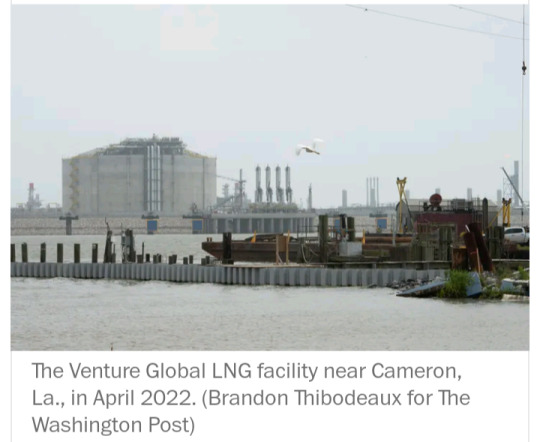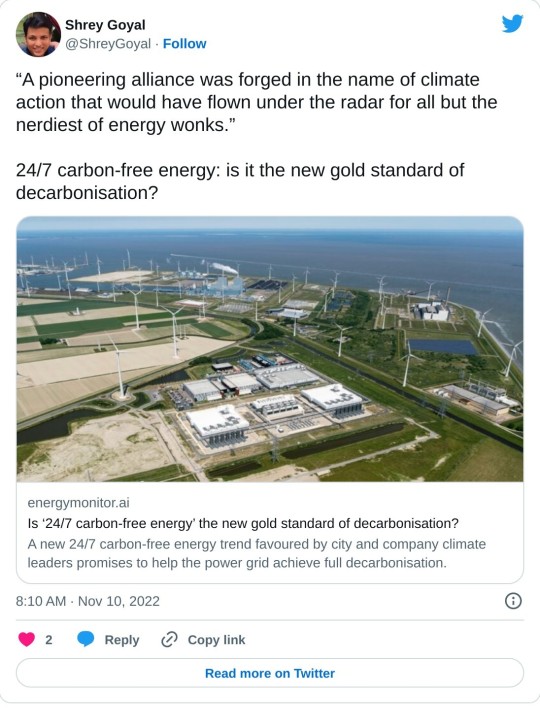Don't wanna be here? Send us removal request.
Photo

King Njoya and his first wife (1910)
Source: John Peffer and Elisabeth L. Cameron - Portraiture and Photography in Africa (2013: 233)
53 notes
·
View notes
Text

Mbororo Fulani woman, Cameroon, Jorge Fernández Garcés
378 notes
·
View notes
Text


Douala, Cameroon, 2021. Treasure beach, Jamaica, 2022.
117 notes
·
View notes
Text
Energizing Entrepreneurship: How NJ Ayuk Sees Natural Gas Catalyzing African
Industry
Thanks to recent discoveries of vast natural gas deposits, African has the potential to create a flourishing energy sector that will enrich the continent for generations to come, according to N.J. Ayuk, Chairman of the African Energy Chamber.
The opportunity this presents for future prosperity isn’t guaranteed, however. Africa’s resources have traditionally been exported to wealthier nations, enriching other lands while providing few benefits to economies on the continent. But if African entrepreneurs make the right decisions, they has the potential to harness the remaining natural gas deposits to create jobs, build reliable energy grids, and fundamentally transform life for millions of Africans, Ayuk said.
How it Happens
As an example on how energy entrepreneurs can jump-start African economies, Ayuk pointed to the recent deal inked by the African company AlphaDen to build a hydrocarbon processing plant in Nigeria.
“I think energy is always going to be a big issue. If you look at the AlphaDen deal, it's 60 million US dollars. It tells you that a lot of stuff that has to be done with natural gas has not really taken place in the continent,” he said. “And being able to really empower African entrepreneurs, small-scale producers, to be able to drive small scale biogas projects ... That first, this is not just gas testing for Europe or Asia. This is gas that's going to be used in Nigeria to industrialize Nigeria.”
By using a loan from the African Export-Import Bank (Afreximbank), AlphaDen relied completely on homegrown resources. The move wasn’t just financially sound, it was also a challenge to other businesses to follow their lead, Ayuk said.
“What is even beautiful is that African entrepreneurs are engaging in doing this, and driving it,” he said. “In the past, we would have to wait for somebody to come from the United States or from Europe to do such a project here. But now you have Africans who have gained experience from either their work with the international energy companies, their work with other kind of institutions, being able to say, ‘We are not just going to be consumers, we are going be producers.’”
Using Natural Gas to Build a Better Africa
Natural gas is a mix of fossil fuels that can be burned to create electricity. It’s a relatively clean-burning source of energy, which makes it a perfect stepping stone to help Africa prepare for an eventual transition to renewable sources of energy, Ayuk said.
“I think we have to use our natural resources in better prudent way. I think we have to come into it with the first state consideration, knowing that these are finite resources. They're not coming back,” he said. “And once you have it in your mind that these are finite resources and that they're not coming back, then you have to start knowing that we've got to be better stewards of what we use.”
African entrepreneurs not only need to re-think their relationship to fossil fuels, they must also re-evaluate the deals that have hindered economic development in the past.
“We have to walk away from issues that we have been victims of, that has created the resource scars. And these resource scars has really not been helpful to Africa,” Ayuk said. “So, we need to reverse the resource cost. And that, when we're using those natural resources, we have to say, ‘How do we build the value chain within Africa and create value addition and really drive it?’”
Using Gas to Create Growth
Africa is home to some of the largest energy deserts in the world. Some 600 million Africans live without access to electricity. Homegrown natural gas companies have a duty to help solve that problem by creating jobs and building infrastructure, Ayuk said.
“For example, right now, if you look at a country like Namibia with vast oil and gas discoveries, it shouldn't only be about Namibia producing natural gas and producing oil, and sending it abroad to other things,” he said. “They have to say, ‘How do we create more gas power projects and gas power projects with pipelines and other things, that we can power Namibia? And turn Namibia to become an industrial hub to supply goods, services, other things, across Africa.’”
If countries like Namibia build reliable electrical grids, they can begin to work in neighboring states to provide more opportunities that will, in turn, bolster growth at home, Ayuk said.
“With African solutions, we have to also start looking at how you really start generating power coming out of maybe biogas and all of that. And I think that is possible within Africa in itself. And when it comes to really driving energy, we need to increase the supply chain and infrastructure across Africa,” he said. “Once we do that, it'll be easy for us to start deploying energy across state lines, cross-border, intra-country. And so, that would be helpful.”
From there, the possibilities are limitless. Once Africans have reliable access to power and steady employment opportunities within the energy sector, worlds of potential will open, Ayuk added.
“There's going to be a lot of larger gas projects that are going to come from African entrepreneurs, and that's going to really drive the continent,” he said.
###
1 note
·
View note
Text
The African Energy Paradox: NJ Ayuk’s Take on Investment, Poverty, and Local Growth
For decades, African countries have sought foreign capital to help bolster their industries and boost their abilities. But too often, those investments have not benefitted the people of Africa. Now, as wealthy nations once again eye the natural of the African continent, N.J. Ayuk, Executive Chairman of the African Energy Chamber, wants to ensure that new deals spread the wealth more fairly.
“Huge investments are coming in, but these investments have to also have a role to play helping our issues that have to deal with energy poverty and also energy growth within the continent,” he said. “If all the investments and all the energy projects in the continent are only going to be about taking oil or natural gas or green hydrogen exported outside of Africa, then these investments would not necessarily have good impact on everyday people.”
Since the War in Ukraine started, many European countries have sought to end their practice of buying natural gas from Russian. The search for other sources of fossil fuels has revived interest in previously abandoned projects in Africa and injected fresh interest in previously undeveloped avenues.
Renewed interest in the African energy sector is an immense opportunity to not only provide income to some of the world’s poorest countries, but also to help kick-start a wave of economic growth by reducing energy poverty and providing a range of jobs for African people, Ayuk said.
The African people are not eager to repeat the investment mistakes of years past. If new energy deals cannot produce results for everyday Africans, “You're going to see a backlash from the communities, because they want to see change,” Ayuk said. “They want to ensure that no matter what you're doing with energy, it is helping, and it is alleviating some of their key concerns, their key problems. That is important.”
How Energy Projects Can Help
Ayuk, who founded the pan-African firm Centurion Law Group, has spent his career focused on the African energy sector.
In his eyes, it’s crucial for all foreign investors to understand the need to build a functional energy grid for Africans—many of whom live with no access to electricity or deal with daily blackout—as part of any new deal that siphon away the continent’s natural resources.
With the renewed interest shown by many American and European companies, this is the perfect time to insist on attaching requirements to contracts that will improve the countries and regions where fossil fuels are being extracted, N.J. Ayuk said.
“I think we're going to see a lot more investment. Investment is going to grow in the continent in 2024,” he said. “You might going to see a rebirth of the $20 billion Mozambique LNG (Liquefied Natural Gas). That’s going to happen with TotalEnergies out of France. And you’re going to see a lot more exploration that will come from big U.S. companies, like ExxonMobil and Chevron.”
The Mozambique LNG project is a good example. The project was expected to produce 43 million tons of natural gas per year, but was shut down in 2021 after terrorist attacks killed civilians in the region. As part of its restart, TotalEnergies has committed to a plan to help locals beyond simply supplying jobs. Among the actions it will take are paying displaced families and providing newly built houses, improving access to fishing, and establishing a foundation to improve local life that will have a $200 million budget.
For N.J. Ayuk, that’s only the start. As outlined in his book, “A Just Transition: Making Energy Poverty History with an Energy Mix,” the goal of all new contracts in the energy industry should be to reverse the decades of exploitation that have gone before. He wants to bring more energy to more people, all across the continent—and not just from projects that harness fossil fuels.
“You're going to see a big increase in renewable capacity that's going to happen, and a lot more investments going into place like Namibia when it comes to issues around green hydrogen and solar systems around the Maghreb region in the north of Africa, that's around Morocco, Tunisia, Egypt,” he said. “So, we going to see energy investment. What we have to look at carefully in 2024 is to ensure that the investment do deal with our energy poverty issues. Because it's not going to be helpful that you have a lot of investments, but at the same [inaudible 00:18:30] poverty issues in the continent. That's not acceptable.”
###
0 notes
Text
NJ Ayuk Chimes in on Principles and Energy Policy
Although the oil and natural gas industry is often painted as greedy, it has the potential to create immense good for the world’s most disadvantaged people — as long as leaders adhere to a few moral principles, according to NJ Ayuk, executive chairman of the African Energy Chamber.
Speaking before a crowd of students at the 9th Annual Cambridge Africa Together Conference at the prestige Jesus College, University of Cambridge in the United Kingdom, Ayuk explained how he planned to fight for social justice throughout his legal career, but the promise of expanded electricity to his home continent, where some 600 million people lack access to electricity, moved him to get involved with the industry.
“The energy sector is going to be the most amazing sector. It is going to change Africa. Energy is life. Energy is power. Energy is everything,” he said. “If a crazy human rights activist like me can be doing energy today, I’ll say it this way: Those making energy decisions are not the chosen geologists or energy scientists. Whether it is renewables, whether it is oil or natural gas, we need you to get involved, whether on the policy side, whether on the finance side, whether on the engineering side. It’s really important.”
As the bestselling author, most recently of the prescriptive A Just Transition: Making Energy Poverty History With an Energy Mix, NJ Ayuk uses his position and influence to urge other countries to invest in Africa’s energy infrastructure. A lawyer by training, Ayuk was born in Cameroon and studied the law in the United States, where he found inspiration and mentorship from Black Americans who spearheaded the Civil Rights Movement of the 1960s.
NJ Ayuk: ‘For Africa, Gas Is Not Green’
One of Ayuk’s predominant themes is the mistreatment that Africa has repeatedly suffered as the result of one-sided energy deals. Too many times, the continent’s natural resources have been mined to benefit Western countries while leaving Africans poor and starving.
Now, as the world confronts the realities of climate change and the need for more sustainable forms of energy, many of the countries that continue to rely on greenhouse gases have asked Africa to keep its oil and natural gas resources unused.
He explained to the rapt student audience that two months after all the pledges that came out of the Conference of Parties of the United Nations Framework Convention on Climate Change in Glasgow, “Norway gave out 52 new oil and gas licenses. The United Kingdom opened their first coal mines in 30 years. They opened the North Sea up for drilling. Germany opened coal mines. The U.S. opened federal lands for drilling. But they told everybody in Africa to do nothing,” NJ Ayuk said. “‘You have to leave it in the ground.’ They consulted a witch doctor who told him that natural gas is green and we can finance it for Europe, but African gas is not green, so we cannot finance it, and we must leave it in the ground.”
He argued instead for fairer rules, pointing out that Western countries should be required to transition away from nonrenewable sources of energy sooner than African countries, which have contributed less than 3% of total greenhouse gases.
“I think this kind of treatment of poor people is not something that we need to accept,” he said during his fireside chat in Cambridge. “I say this as somebody who has a good life. I don't need to do this, but I think your generation and everybody here, you need to be able to stand up for something and have a principle. We need to be able to really address these issues, and even in the polarized world, but be able to say that we need some fairness here. South Africa, Africa’s most industrialized country, lives with eight to 10 hours a day in the dark. They call it load shedding, the Nigerians call it blackouts. It happens all over.”
Students Can Use Idealism To Push for Equity, Says NJ Ayuk
To combat energy poverty, NJ Ayuk urged students to use their idealism to push for fairer treatment of Africans in the energy sector. Not only is it the right thing to do for the continent and the world, he said, it’s also a lucrative field.
“There's going to be a lot of entrepreneurs and a lot of money. Think about it,” he said. “To get to net zero, you’re going to spend about $80 trillion to $100 trillion to get there. That's a lot of money for you guys to miss out on, thinking that you don't want to be part of that. It's going to affect you anyway. We don't have the luxury to say ‘You have to be only in oil or gas.’ Heck, I want to see more Africans involved in the renewable energy space.”
NJ Ayuk shared, “One of my greatest heroes in history is Dr. Martin Luther King Jr. He talked about the arc of a moral universe. It is long and it bends toward justice. But surely it doesn't bend by itself. It's everyday people that get up, that move it, that shake it, whether left or right, and you keep shaking it.
“You keep shaking it and you make it bend toward justice because you are going to be that greatest generation and you are really going to change the world. As a 43-year-old, I still believe I can change the world and I'm not giving up hope.”
0 notes
Text

Energy Pricing Structures Promote Increased Use of Scarce Groundwater Resources in the High Plains Aquifer Region
"The Road to Hell...." Don't you love it when public policy objections are in conflict.
Irrigating with groundwater requires energy to pump water from the aquifer to the field. For much of the groundwater-fed irrigated agriculture in the HPA region, the energy costs incurred when pumping groundwater is the only explicit price paid for water. There are multiple sources of energy for groundwater pumping, such as diesel fuel, natural gas, and propane, but electricity is the primary source of energy for agricultural groundwater users in the HPA region. Many electricity providers in the region use decreasing block rate (DBR) price structures for irrigation customers. Farmers choose the amount of water to pump by balancing the costs and benefits of additional water. The DBR electricity pricing structure creates an incentive for irrigators to use more electricity and water than a uniform pricing structure because the energy costs of water decrease as pumping increases.
1 note
·
View note
Text

Biden faces a crucial fossil fuel decision. Will he stand up to Big Oil?
Washington is too fixated on either/or when their object should be safe, economically-stable transition.
1 note
·
View note
Text

View on Twitter
“A pioneering alliance was forged in the name of climate action that would have flown under the radar for all but the nerdiest of energy wonks.”
24/7 carbon-free energy: is it the new gold standard of decarbonisation?
https://t.co/245T4B9uvK
(Source)
2 notes
·
View notes
Text
#njayuk
It would, of course, have made more sense to stop suppressing domestic oil drilling, but Dementia Joe has no sense. We’re now down to an 18 day supply in the Strategic Petroleum Reserve. Absolute idiocy!
5 notes
·
View notes
Photo

Image from page 233 of “From the Congo to the Niger and the Nile : an account of The German Central African expedition of 1910-1911” (1913) (via Internet Archive Book Images)
85 notes
·
View notes





